The Dieta Starts
Chapter 10: For a week, we stayed in our new place in the jungle, building the house. It already had a roof made from palm leaves, and a simple but sturdy floor made from the thick bark...
A Note Before Publishing
The last time I published a chapter of Walking with the Serpent was in August 2023. Since then, I’ve felt an internal hesitation in sharing the following chapters, as they recount my first long dieta, and are very personal experiences.
In the time that has passed since opening this dieta in November 2014, I’ve observed a sharp increase in people seeking out ceremonies, visiting Indigenous tribes, and entering the path of dieta. What was once a sacred and intimate process has, in many ways, become an industry. The sheer number of people drinking Ayahuasca worldwide has left a clear imprint on the Amazon, with over 80% of the natural vines now depleted.
More and more Westerners are traveling to Indigenous territories, bringing money, attention and seeking spiritual knowledge. While many arrive with good intentions—hoping to learn, heal, or support Indigenous communities—the consequences of this movement are not always beneficial, particularly for the Indigenous people themselves.
The influx of visitors has placed immense pressure on communities that were never structured to receive a continuous stream of outsiders. The dynamic of exchange often shifts as money enters the equation, creating an imbalance where traditions that were once passed down through lineage and deep apprenticeship become commodified. The necessity for economic survival leads many Indigenous people to accommodate the expectations of visitors, sometimes at the cost of their own cultural integrity.
I have witnessed firsthand how the traditional ways of learning—based on time, patience, and deep relational trust—are being eroded. In some cases, younger generations are drawn more to tourism-based opportunities rather than following their ancestral path. This is not to blame them; when a village sees that hosting ceremonies and dietas for foreigners generates far more income than their traditional livelihoods, priorities inevitably shift.
This influx has also deeply affected the sacred plants themselves. With over 80% of natural Ayahuasca vines depleted in some areas, Indigenous communities must now replant what was once abundant. In some places, the loss of access to their own medicine has forced Indigenous people to buy vines at high prices or source them from plantations rather than from the land they have stewarded for generations.
Perhaps most importantly, dieta—one of the most profound and delicate forms of spiritual apprenticeship—is often misunderstood by those arriving from outside cultures. Traditionally, dietas were given as an initiation after years of preparation and guidance, with elders ensuring that the student was ready for such a commitment. Now, it is not uncommon to see people arriving in the jungle and, within a few days, being given access to dietas they may not be prepared for—sometimes by people who themselves have not undergone the proper training to open and guide such processes. This is not only spiritually dangerous for the individual but can also diminish the sacredness of these ancient practices.
These are complex issues with no simple answers. While there are ways to engage respectfully, it requires more than just good intentions—it demands discernment, patience, and a willingness to pause, listen and learn before participating.
This is part of why I hesitated to publish this chapter. I do not want my words to inspire people to rush into dietas without understanding the depth of the commitment and the responsibility that comes with it.
I am now publishing the next chapters, but with trust that you know that I am not promoting dieta—especially not the dieta of Muka. It is a very difficult dieta and should only be considered after spending at least a few months, over the course of years, with the Yawanawá, completing other dietas like Sēya, and having built a strong relationship with one of the spiritual leaders of the tribe who has the experience to open such a dieta. I later learned that Luis, who opened this dieta for me, was not truly equipped to do so—he had never done a dieta himself.
And perhaps, in ways I could not have foreseen at the time, the intentions set during this dieta are now coming to life.
In the past weeks, we have planted another 1,000 Ayahuasca vines and 400 Chacruna plants in the Yawanawá territory—several hundred of them in the village of Muka. What began as a prayer whispered into the jungle over a decade ago has now taken root in the earth, growing into something tangible. This is not just the fulfillment of an intention but a step toward restoring what has been lost—honoring the sacred balance between the people, the plants, and the land that sustains them.
I share these words not to encourage people to seek out a dieta, but to document my own journey as I originally wrote it, years ago.
For a week, we stayed in our new place in the jungle, building the house. It already had a roof made from palm leaves, and a simple but sturdy floor made from the thick bark of a certain tree. The walls were still nonexistent. Our days moved slowly, and we were all adjusting to the rhythm of the jungle. Louisa spent her time tending to the land around the house. Relentlessly, she wielded the machete, clearing smaller plants and roots, then swept the bare earth with a broomstick she had fashioned from sticks and leaves.
Observing her, I came to understand that keeping the jungle floor clean was important. When it was cleared, it was easier to spot animals like snakes and spiders. Fallen leaves and sticks provided the perfect hiding places for them. Louisa’s work ensured that we were safe, that we could move around without too much concern. Seeing her work for so many hours and days made my love and appreciation for her grow immensely.
Just watching everything unfold brought me into a deeply peaceful and relaxed state. I started to understand more about life in the jungle, and with that understanding came trust. The impatience I had felt before was slowly fading. The calm pace of the jungle helped me surrender into all that was unfolding. I knew I was there for a reason—everything that was happening was preparation for the dieta.
Qwatsi was always present in those early days, making himself available wherever help was needed. I often saw him carrying massive logs on his shoulders, or piling heaps of firewood for Louisa to cook our food. Just watching him move through the days filled me with admiration.
Each morning, Edi, Muca, Maku, and I would walk with Luis through the jungle, searching for Muka—the plant that would open my dieta. At first, I assumed we would find it quickly and was anxious to begin. But the days passed, and still, we had not found Muka. Nature humbled me. I had to let go of control, let go of my own sense of time. A dieta unfolds with its own intelligence, its own rhythm. My task was not to force it, but to surrender.
As we walked, I realized that I would never be able to find the plant on my own. I was entirely dependent on the others, on their knowledge and experience. So, I walked in silence, watching, waiting for Muka to present itself.
One morning, we had been walking for an hour in complete stillness when Maku stopped abruptly. He crouched down and studied a small plant. After a long moment, he turned and pointed to it. There was something about it. It was surrounded by other plants, yet there was an empty space around it, as if the jungle had parted to make room for its presence. A beam of sunlight had broken through the thick canopy, illuminating the plant directly. I felt it—this was Muka. This was the plant I had been waiting for.
It was relatively small, about thirty centimeters high. Its delicate green leaves radiated outward, slender and elegant. There were no flowers, just an undeniable presence—a quiet but potent force.
Maku called Luis over for confirmation. Luis knelt, carefully examined the leaves, turning them over in his hands, checking every detail to be sure. Then he nodded.
“This is it,” he said. “This is the plant for Vātā Txanū.”
A wave of energy rushed through my body. We gently pulled Muka from the ground. Two small potatoes grew from its roots, each the size of a large grape. Luis looked me in the eyes, nodded again, and started to walk back, the plant in his hands. I followed, my heart full. The moment I had been preparing for had finally arrived.
I reviewed my intentions for the dieta. Over the years, working with sacred medicines, I had learned that intentions are crucial. They create focus. They set the direction.
Life can be like a ship in the middle of the ocean. Sometimes the waters are calm. Other times, the waves rise high, and a storm overtakes the vessel. A dieta is no different. The force of the plants can be unpredictable. But remembering your intention is like grabbing the steering wheel of that ship, taking command. No matter how strong the current, you still know which way you are intending to go.
The clearer and more positive an intention, the better. I had learned that it was best to frame an intention as an affirmation, focusing on what I wanted to call in rather than what I wanted to release. On a ship, you sail toward something—not away from something. Likewise, an intention should be a prayer of invitation, not a statement of rejection.
As the dieta drew near, I took time to prepare an altar. I placed my notebook on the ground, leaning it against one of the poles of the house. I unpacked a few crystals, each carrying memories of different moments in my life. I placed small candles I had received from a dear friend who worked at my center in Peru, representing the support of my team. I placed a picture of Guru Ram Das, marking my years of Kundalini Yoga and my daily spiritual practice.
I took out my ankh—a symbol of the ancient Egyptian key of life. For me, it signified that everything unfolds in divine perfection, that all doors open in their own time. I placed a small wooden angel that my mother had gifted me during my Reiki master initiation. Next to these, I set down a bottle of Santo Daime, my sacred connection to that lineage. Finally, I placed my shruti—the instrument that would carry my voice into prayer.
A shruti is an ancient Indian instrument, similar to a harmonium, that produces a deep, steady drone. The word shruti comes from the Vedas—the ancient scriptures of India. The Vedas were never simply recited; they were sung. Their language was one of rhythm, not intellect. The shruti instrument was a way to recall those ancient prayers, to bring the divine into sound.
For months, I had contemplated the song I would sing to open my dieta. In my last ceremony before leaving Peru, I had received a song for Muka. It felt right to open my dieta with this song. A dieta begins with a prayer sung into life, and the shruti was the perfect instrument for this moment.
I sat before the altar, took a deep breath, and began to play.
The deep, resonant sound of the shruti filled the air, vibrating into the jungle. And then, I sang:
Muka, Muka
Padre de la Tierra
Enséñame, cúrame
Trabaja conme, entra enme
Madre, Madre
Ayahuasca
Cura, cura
Madre, Madre
Chacrunita
Pinta, pinta
Yawanawá,
Muito obrigado
Muito obrigado
I let the song carry itself into the trees, into the sky, into the unseen. When it was done, I gently set the shruti aside.
I reached for the Muka roots, holding them in my hands. My breath was deep, steady. My heart pounded. I could feel the blood pulsing through my veins, the energy of the plant already working through me.
Luis stepped forward, his voice calm but firm.
“Are you ready?”
I looked into his eyes and nodded. “Yes.”
I took my first bite of Muka.
I bit into the potato’s flesh, its bitterness hitting me with force. I chewed slowly, keeping my face completely neutral, as Luis had instructed. This was important—any grimace or sign of struggle could make the dieta more challenging. The spirit of Muka, they said, observes every gesture, every thought. I swallowed my saliva for the first time and kept chewing. Each motion was deliberate, each moment fully present.
The bitterness intensified with every chew, and as I swallowed again, a deep force began to enter me. It was both subtle and overwhelming, a current of beauty and wisdom that moved through my body. With my left hand, I counted the swallows on my fingers. After four swallows, I spat out the remaining pulp. The whitish paste of the masticated potato sat sticky in my hands, its texture coarse and raw.
Luis gestured for me to rub the paste over my hands, working it into the skin. I did as he said, feeling the energy of the medicine seep into me. Each movement deepened my breath, and as my hands became coated with the remnants of Muka, I felt a shift within. The medicine's force seemed to connect with something ancient inside me.
When my hands were completely covered, I brought them to my mouth, forming an open circle around my lips. With each exhale, I blew an intention into my hands, into the Muka, and into the universe. My breath carried the prayers from my heart, releasing them into the world. Each breath grew deeper and more powerful, the force coursing through me like waves crashing onto a distant shore.
Luis stood nearby, offering quiet sounds of encouragement as I continued. I had prepared some intentions beforehand, carefully written in my notebook, but most of them emerged spontaneously in the moment. They came unbidden yet perfectly formed, as though the breath itself carried them into being.
My intentions began with the teachings of Caboclo Tupinambá, one of the guiding forces of the Umbanda tradition. His words resonated deeply as I spoke them aloud, each line carrying the essence of life’s purity:
Life
Health
Happiness
Open Paths
Health in the body
Peace in the spirit
And love in the heart
It is this that we wish
For ourselves
For our beloved ones
And for all of our brothers and sisters.
I felt the truth of these words echoing through the jungle, connecting to something greater. These wishes were not just for me but for everyone—for all beings, everywhere.
From there, my prayers expanded. I called in protection, guidance, wisdom, and light. I asked for blessings for my parents, my family, my loved ones, and even those I considered adversaries. I asked for insights to help me understand the next steps in my life and for clarity about my work at the center in Peru. I prayed for knowledge about maintaining health in body, mind, and spirit and for the ability to prevent illness. I prayed for the Indigenous peoples, their sacred knowledge, and the preservation of their lineages, forests, and plants.
With each prayer, the energy in the space grew. Finally, I focused on the house we had built in the jungle. I asked that it grow organically into a center of learning and healing—a space that could support the Yawanawá people and their wisdom. As my prayers flowed, so did the energy. Each breath carried my gratitude and intention, weaving them into the fabric of life.
Then, something shifted. A deep, powerful energy rose within me, reaching my heart and revealing the core intention for my dieta. It was abundance. Above all else, I wanted to call in abundance—not just for myself, but for all. Abundance in love, in wisdom, in connection. Abundance not as material wealth, but as a richness of spirit and generosity. This was my core intention for the Muka dieta.
I blew this final intention into the universe with all my strength. When the last breath was released, I lowered my hands to my lap, the paste of Muka still covering them. I sat in stillness, allowing everything to settle. It was as though time had stopped, and the world around me felt alive in a new way.
Gratitude surged through me—a gratitude so immense it felt as though my heart might burst. I thought of the plants, the earth, and the intricate connections that sustain life. Without plants, we wouldn’t exist. The air we breathe, the food we eat, and so many of the medicines we rely on all come from them. And yet, their gifts go far beyond the physical—they offer teachings, guidance, and a profound sense of connection. For the first time in my life, I truly saw this, and the realization brought tears to my eyes.
When I opened my eyes, Luis was sitting across from me, watching in silence. Our gazes met, and no words were necessary. In that moment, everything felt aligned. The ceremony had reached its conclusion.
I walked slowly to my mattress and lay down, the roots of Muka still working within me. I was to remain there for the next twenty-four hours, speaking to no one, moving only when absolutely necessary. My thoughts had to stay pure, focused solely on love, truth, and respect. Negative thoughts or words would interfere with the dieta, and I was determined to honor its sacredness.
For the next three months, this focus would guide me. My speech would be noble and deliberate, avoiding gossip, lies, or harm to others. Every word, every thought, and every action would be a prayer, calling in love and light.
The journey had begun.



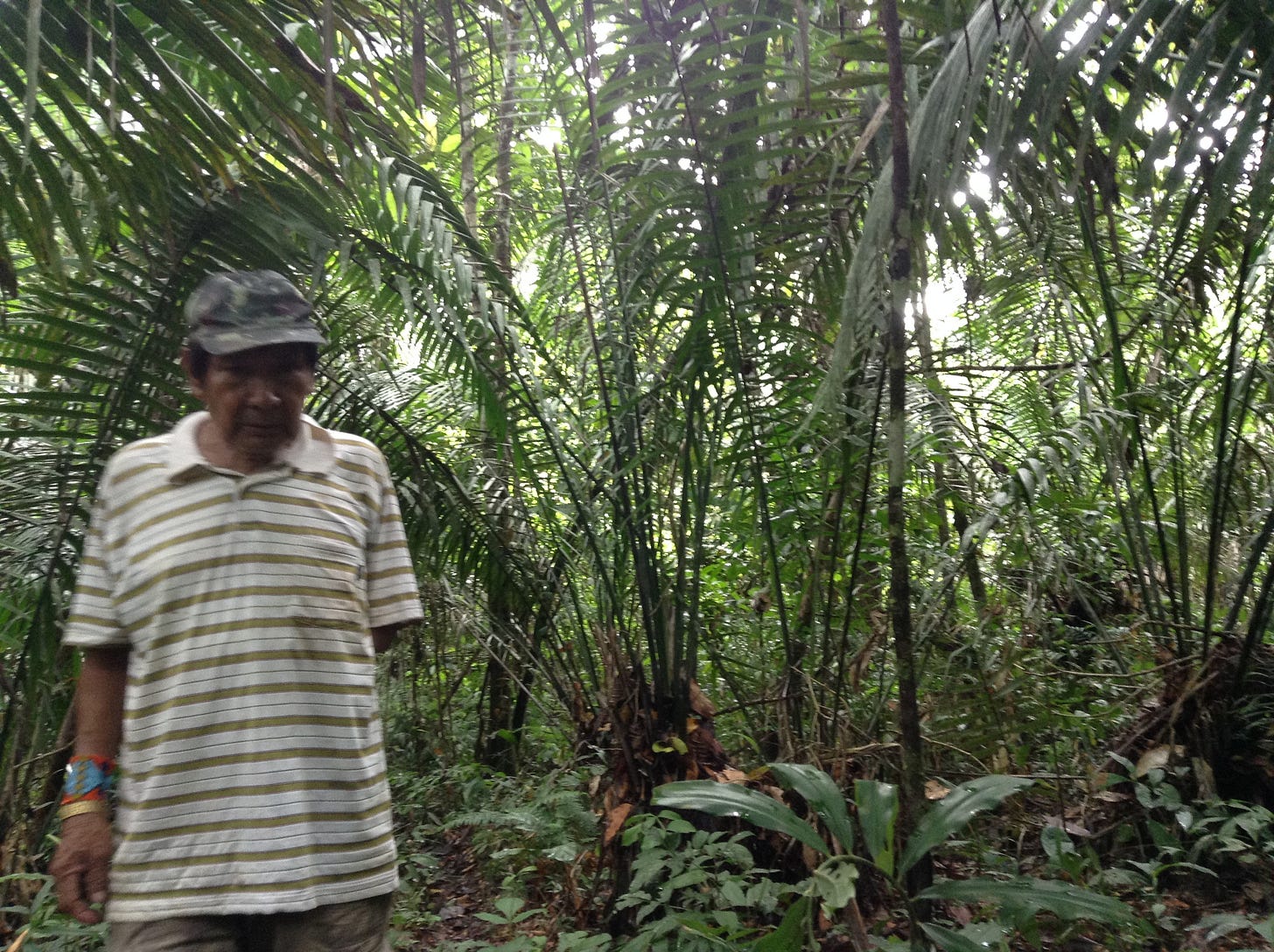
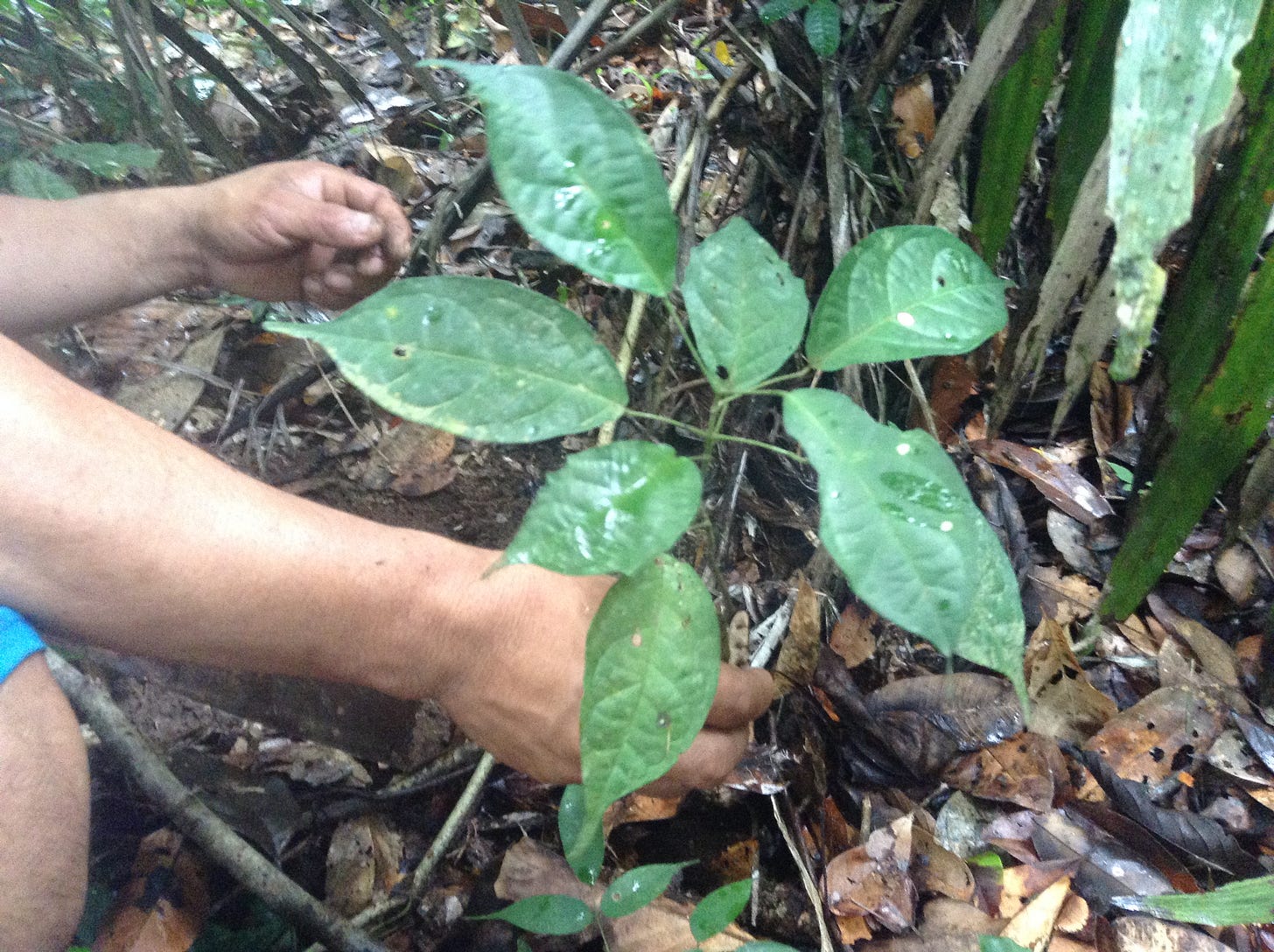
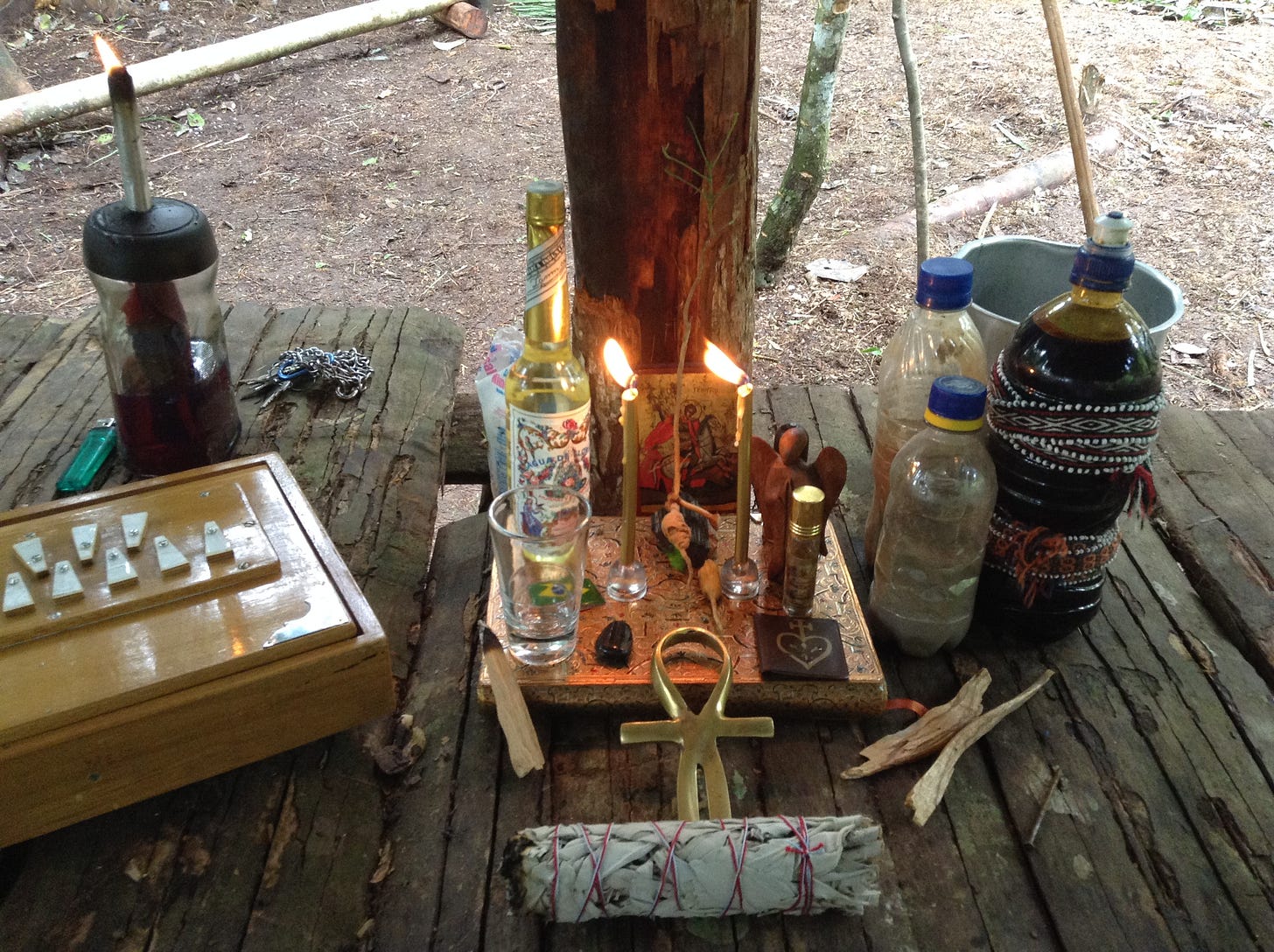
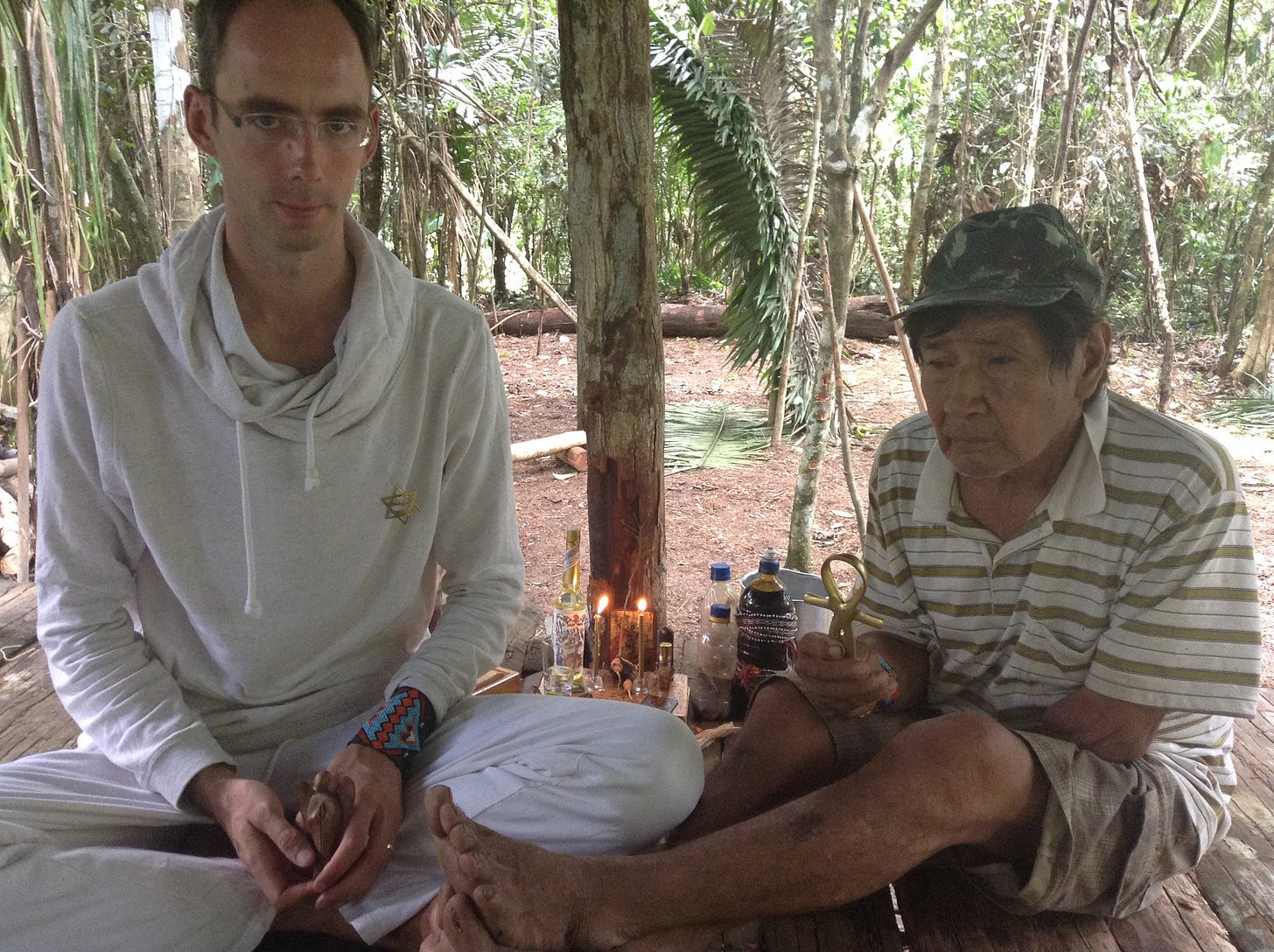
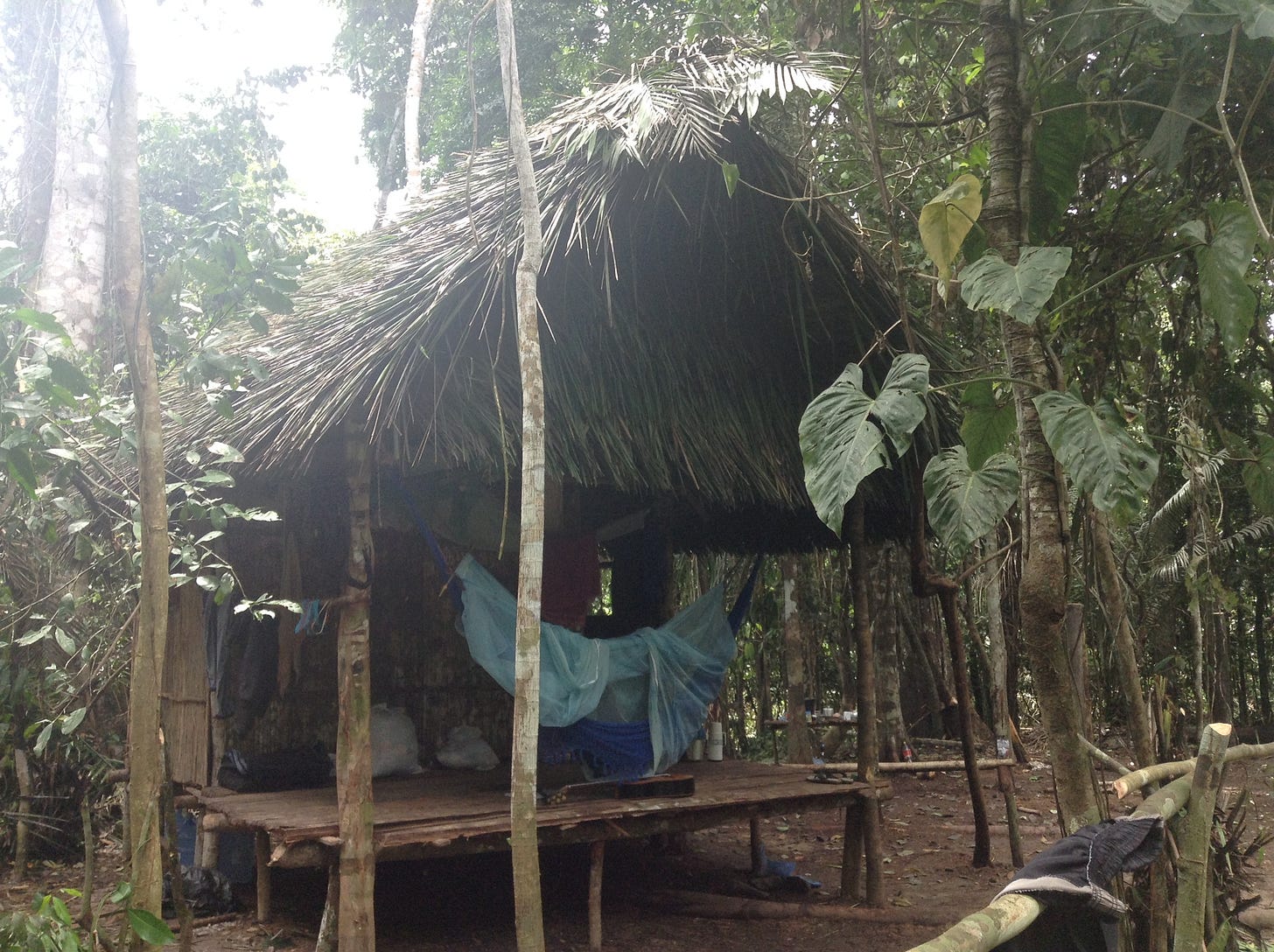
Thank you for sharing this new chapter, I'm deeply touched!